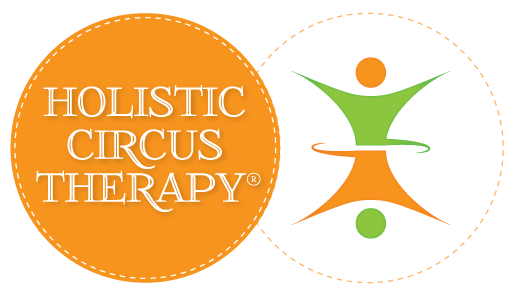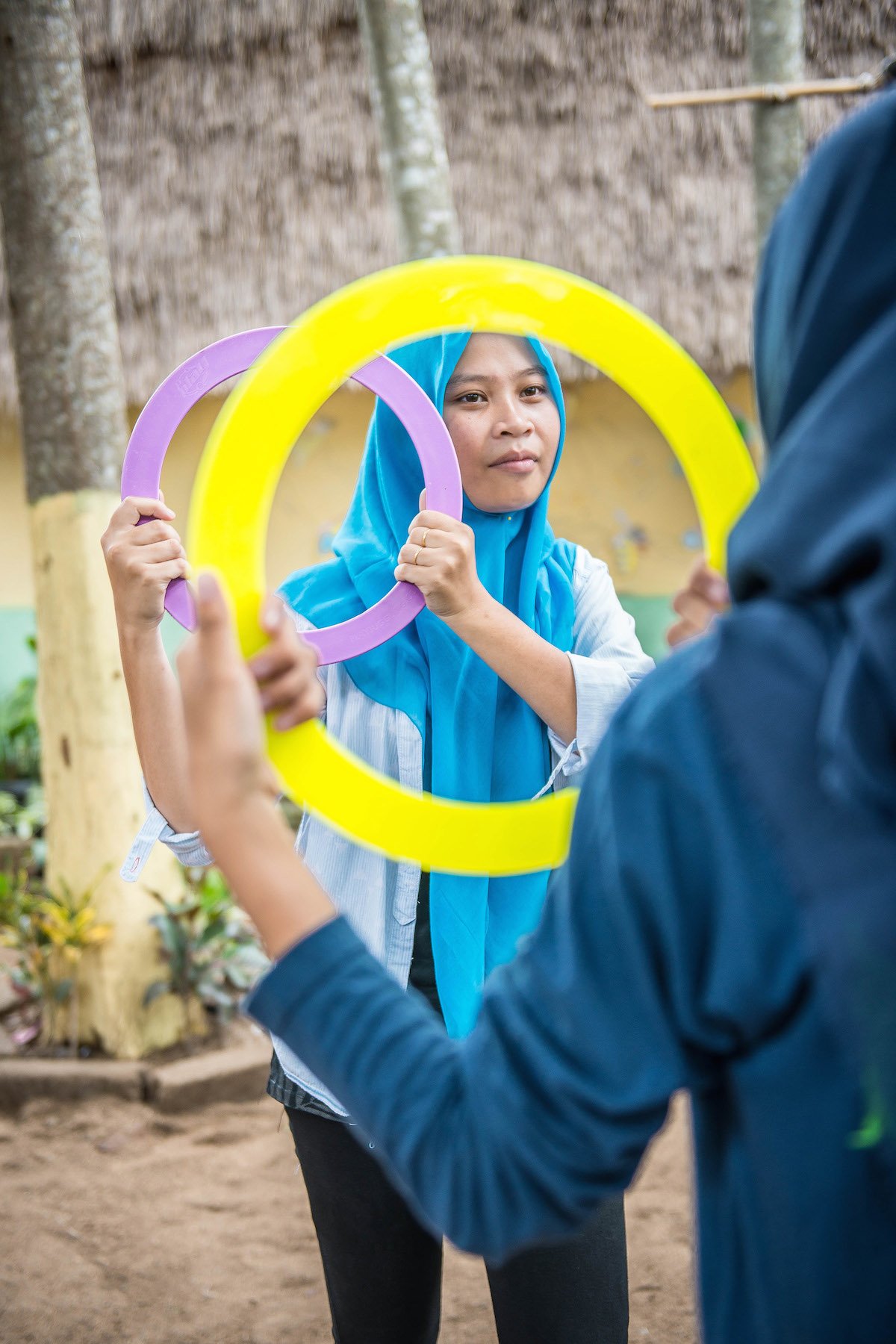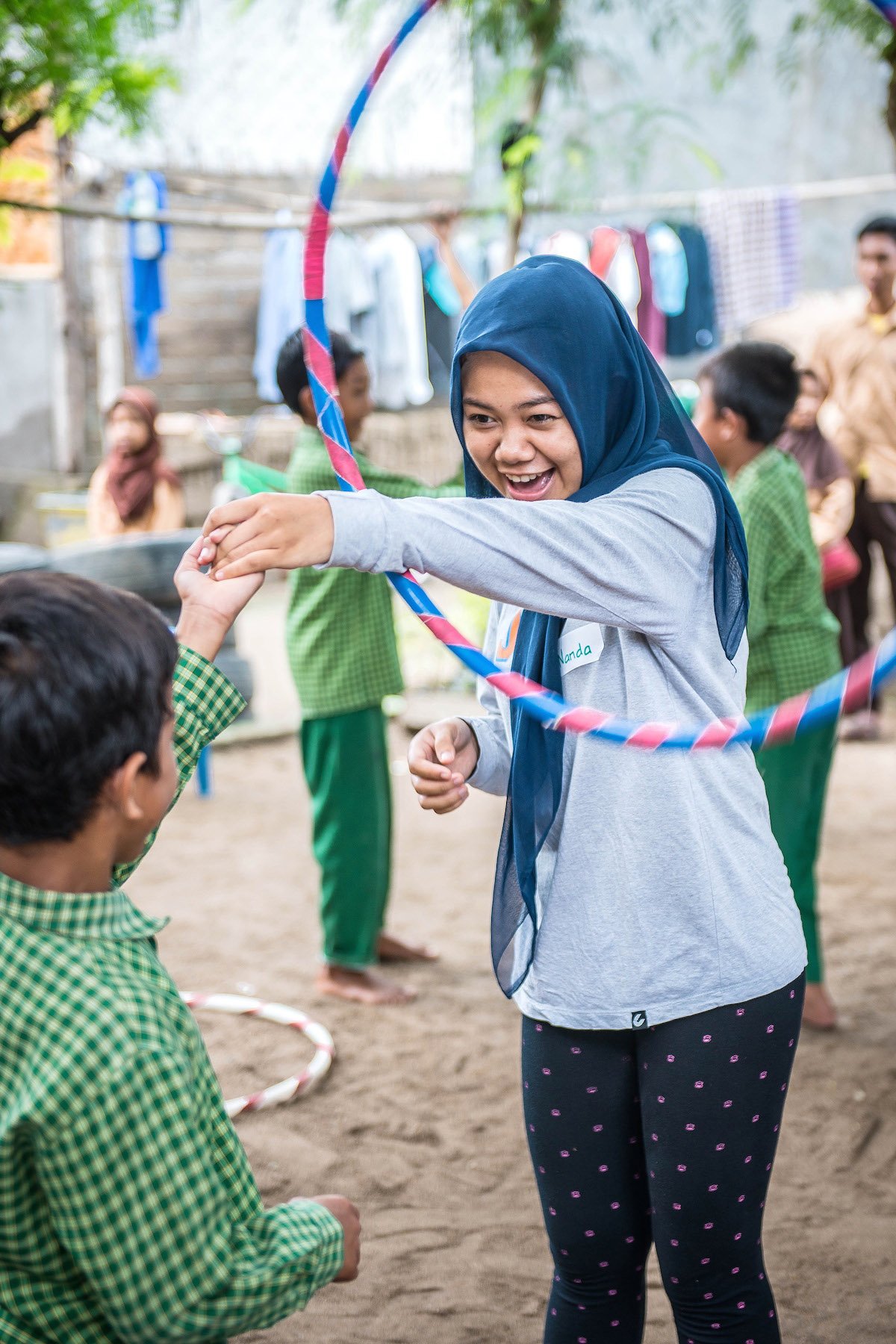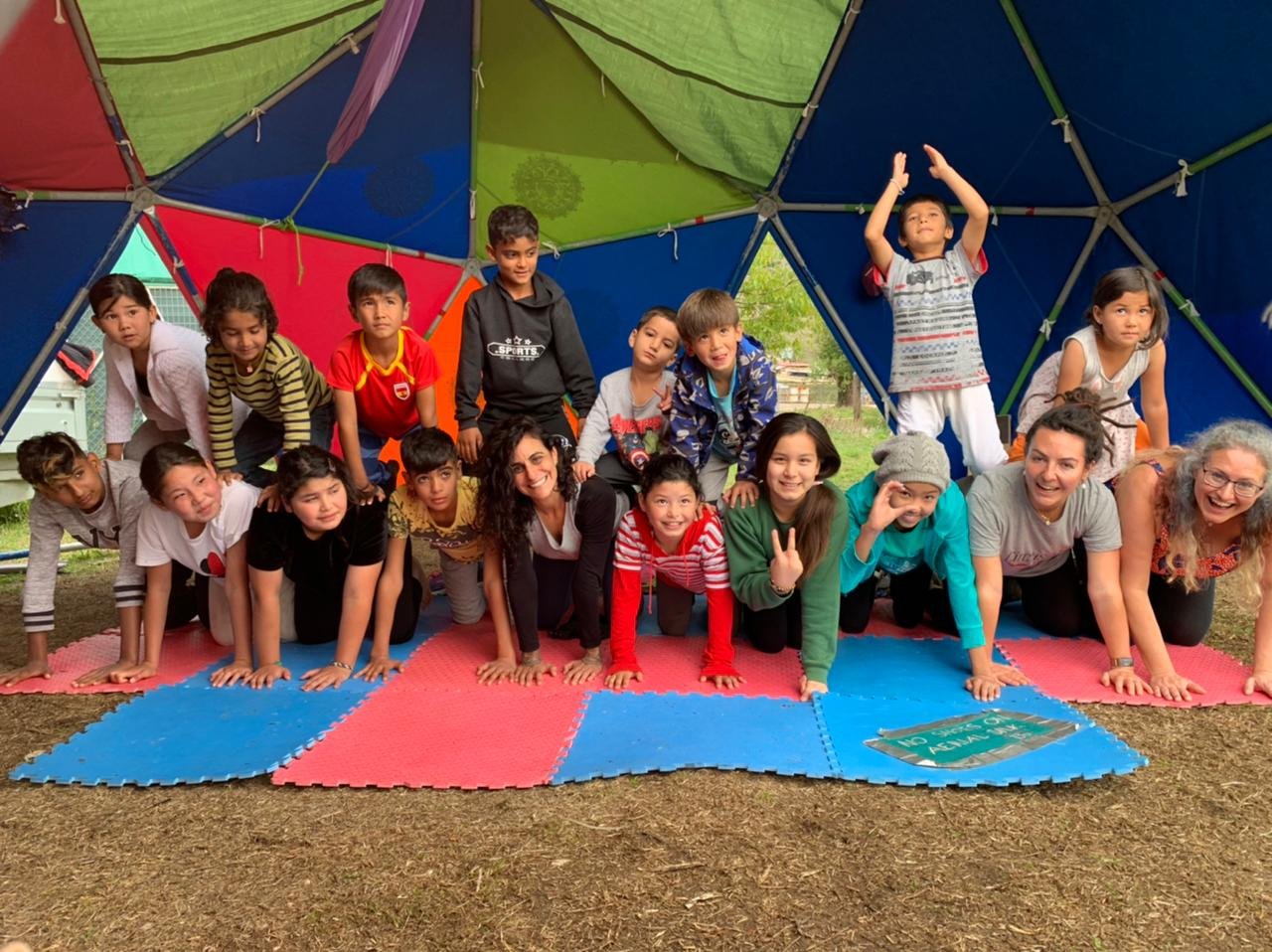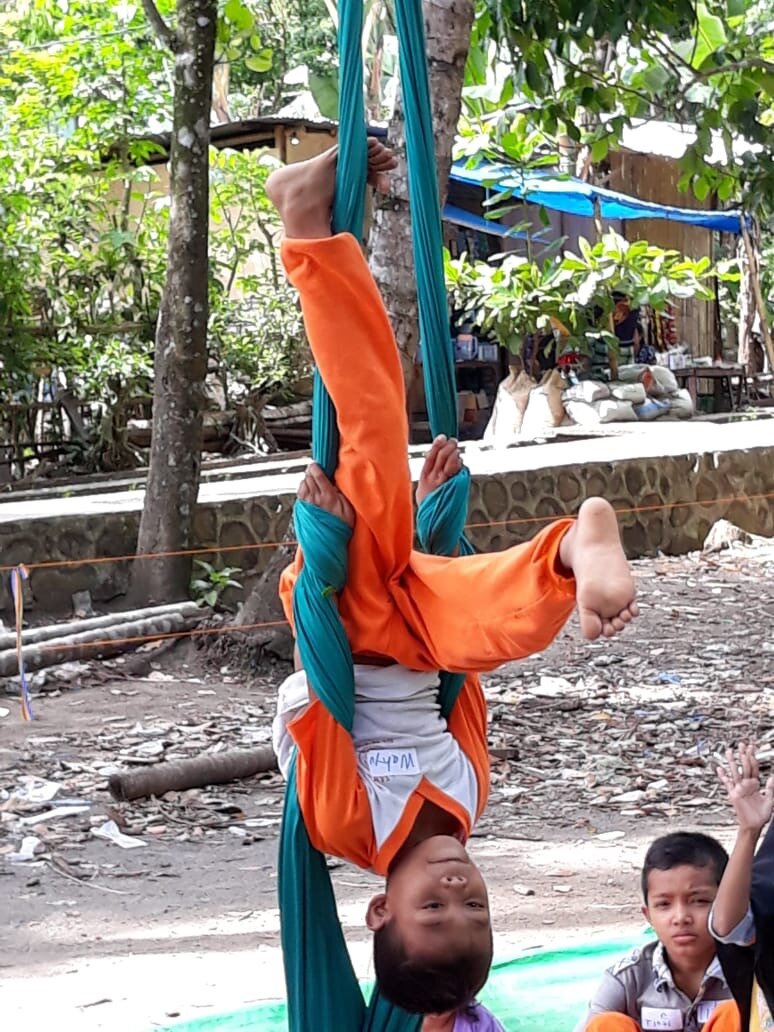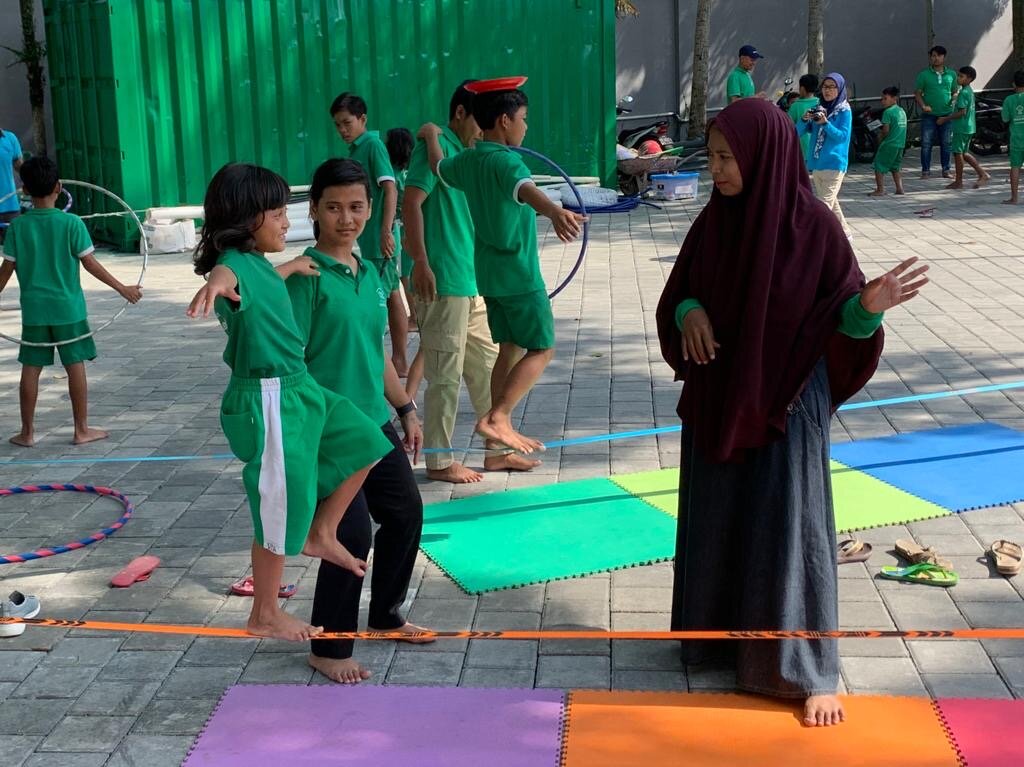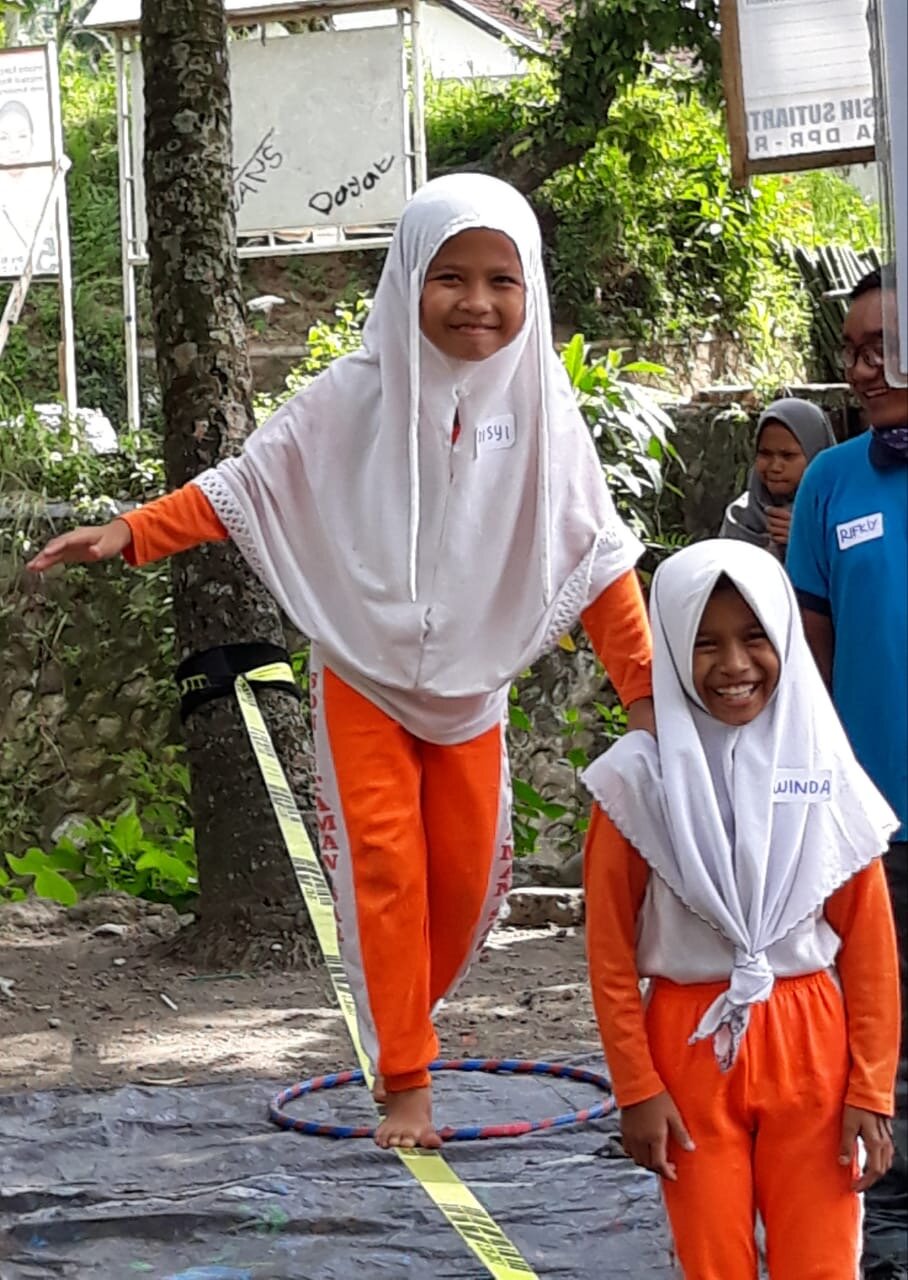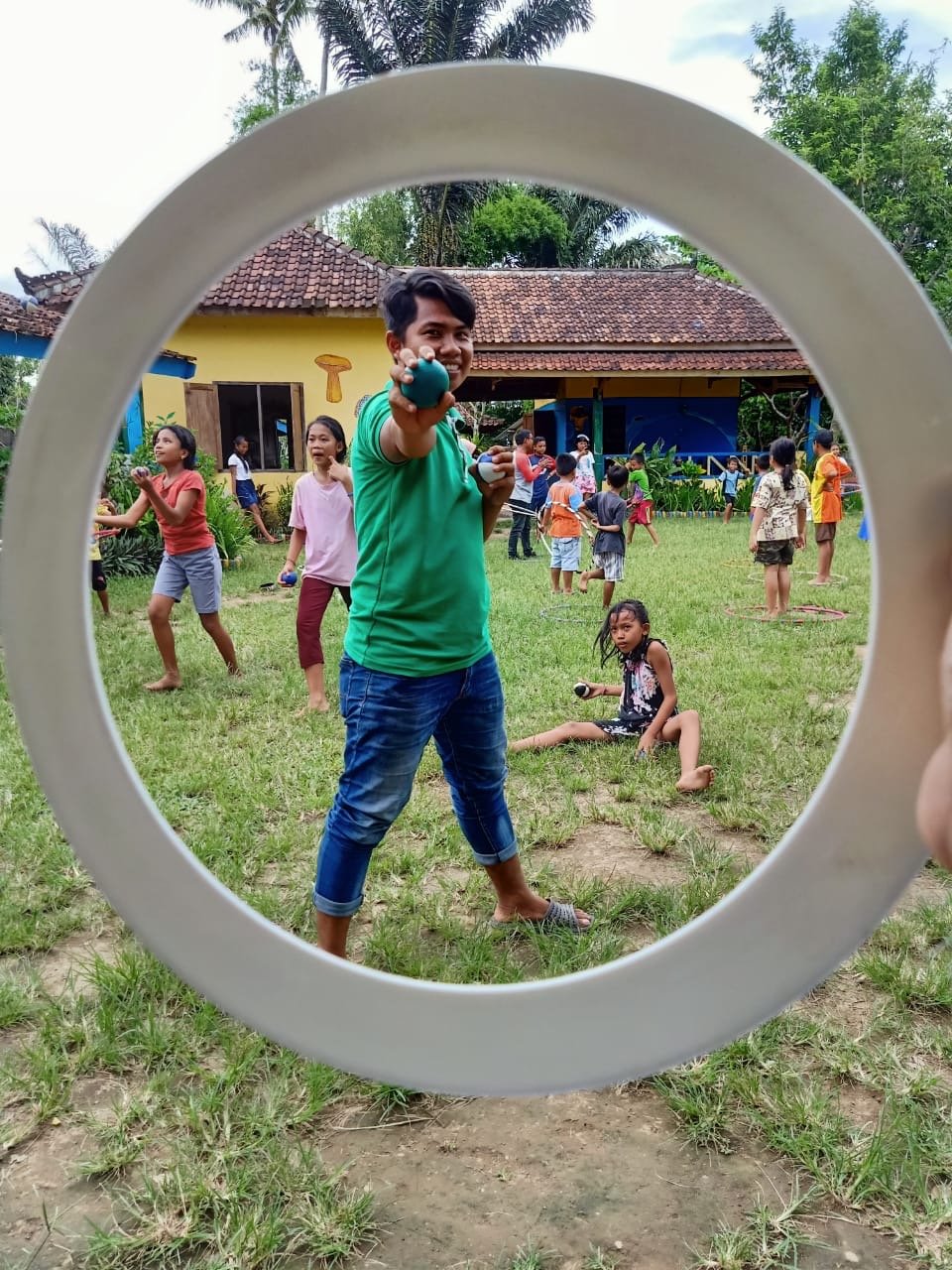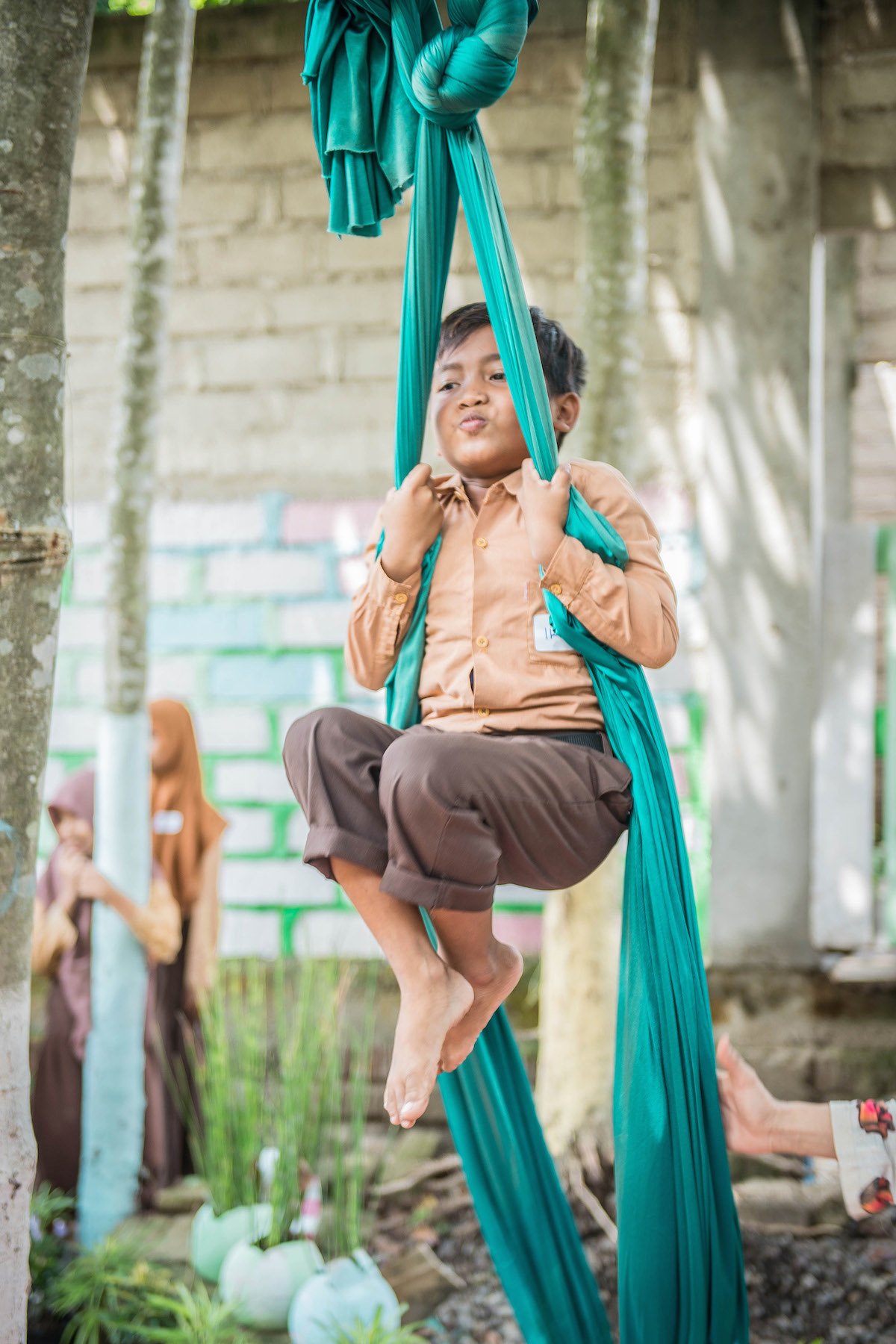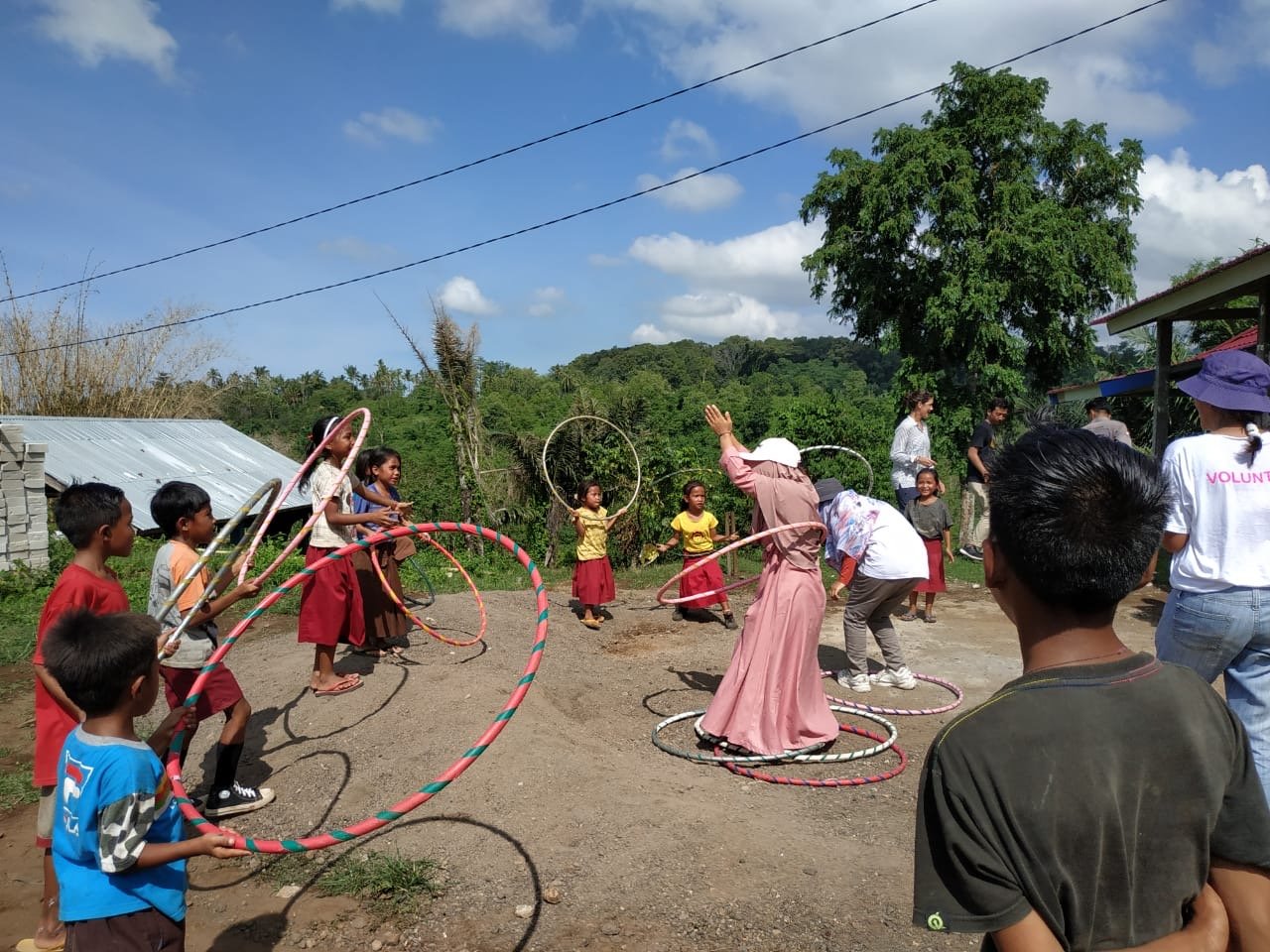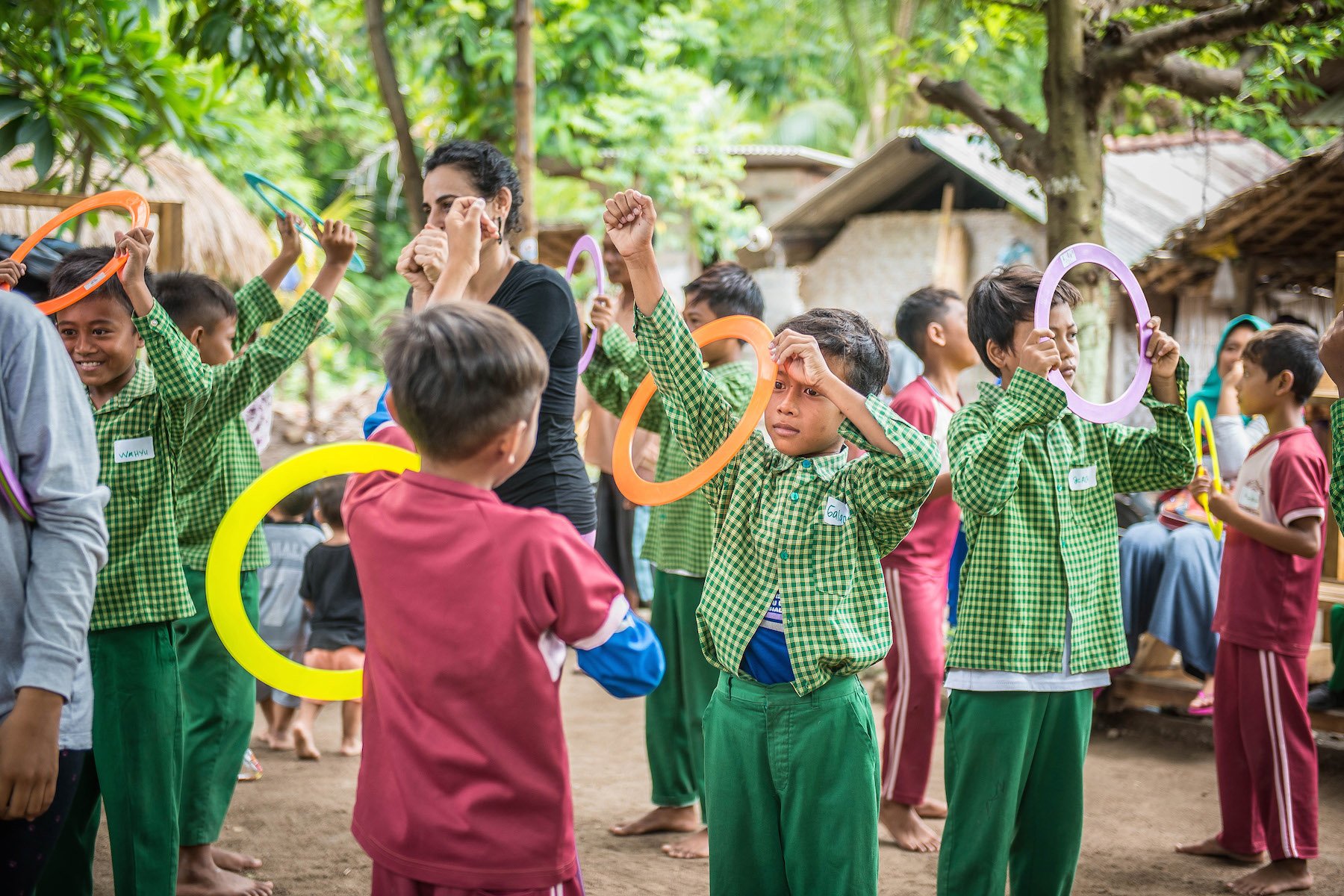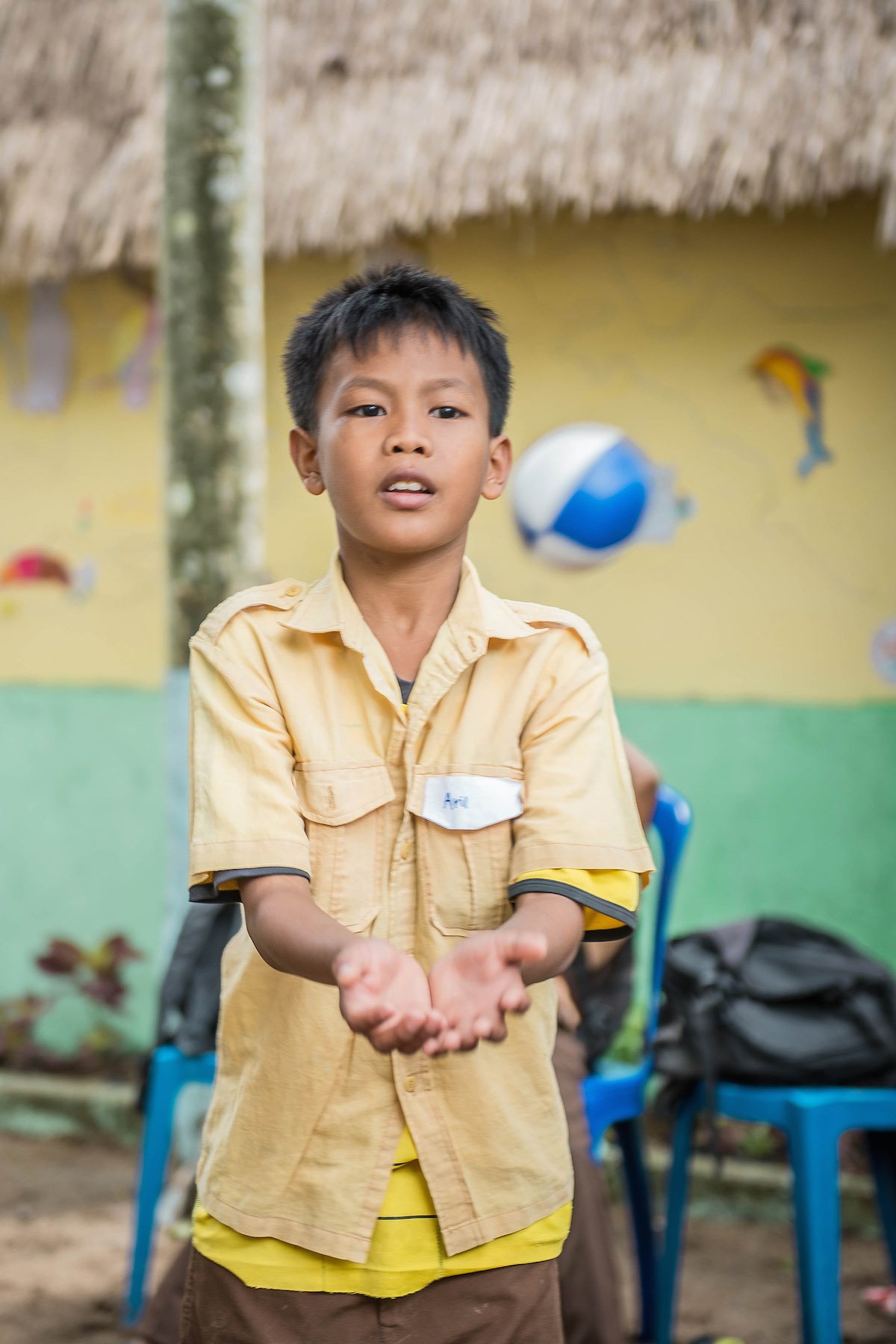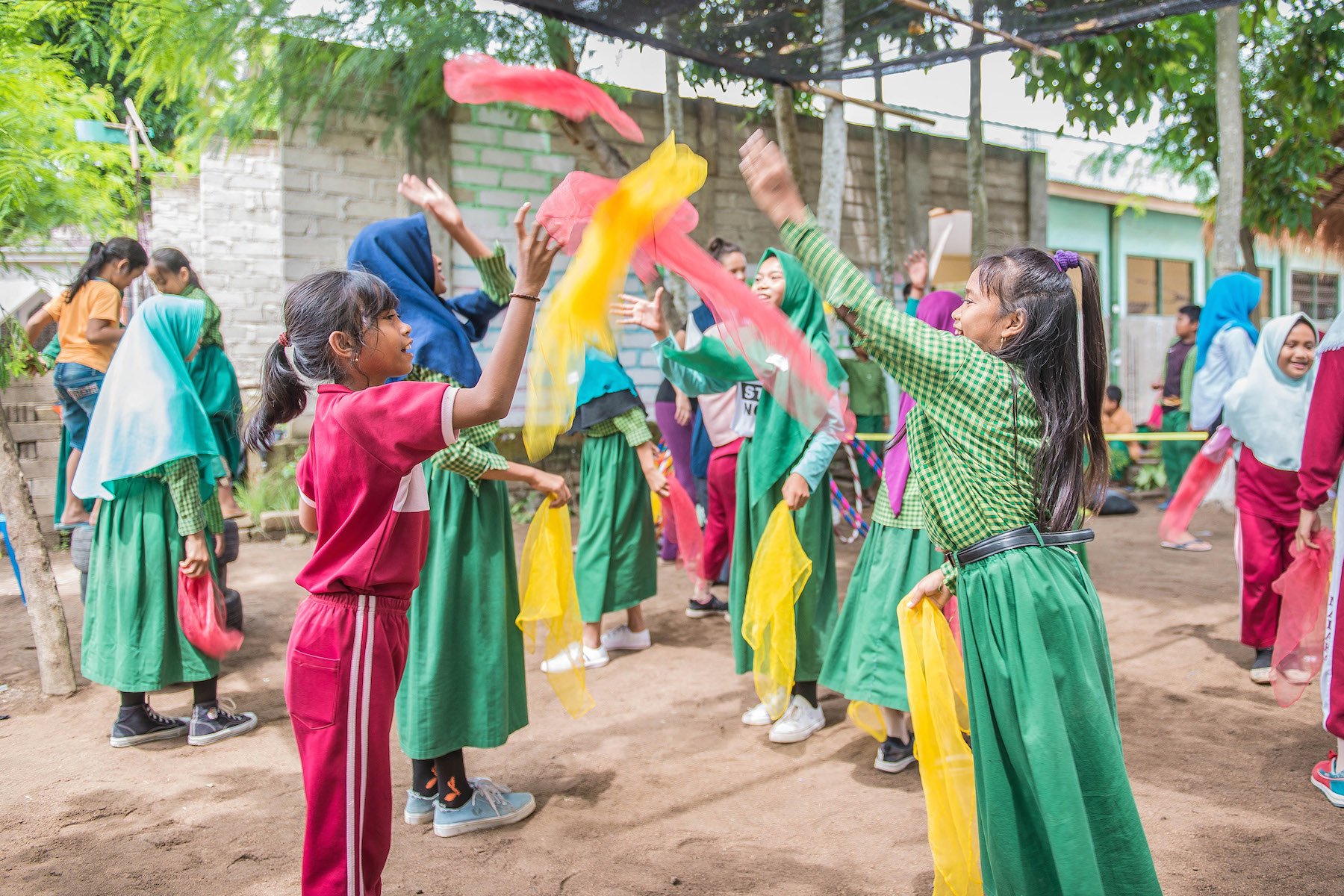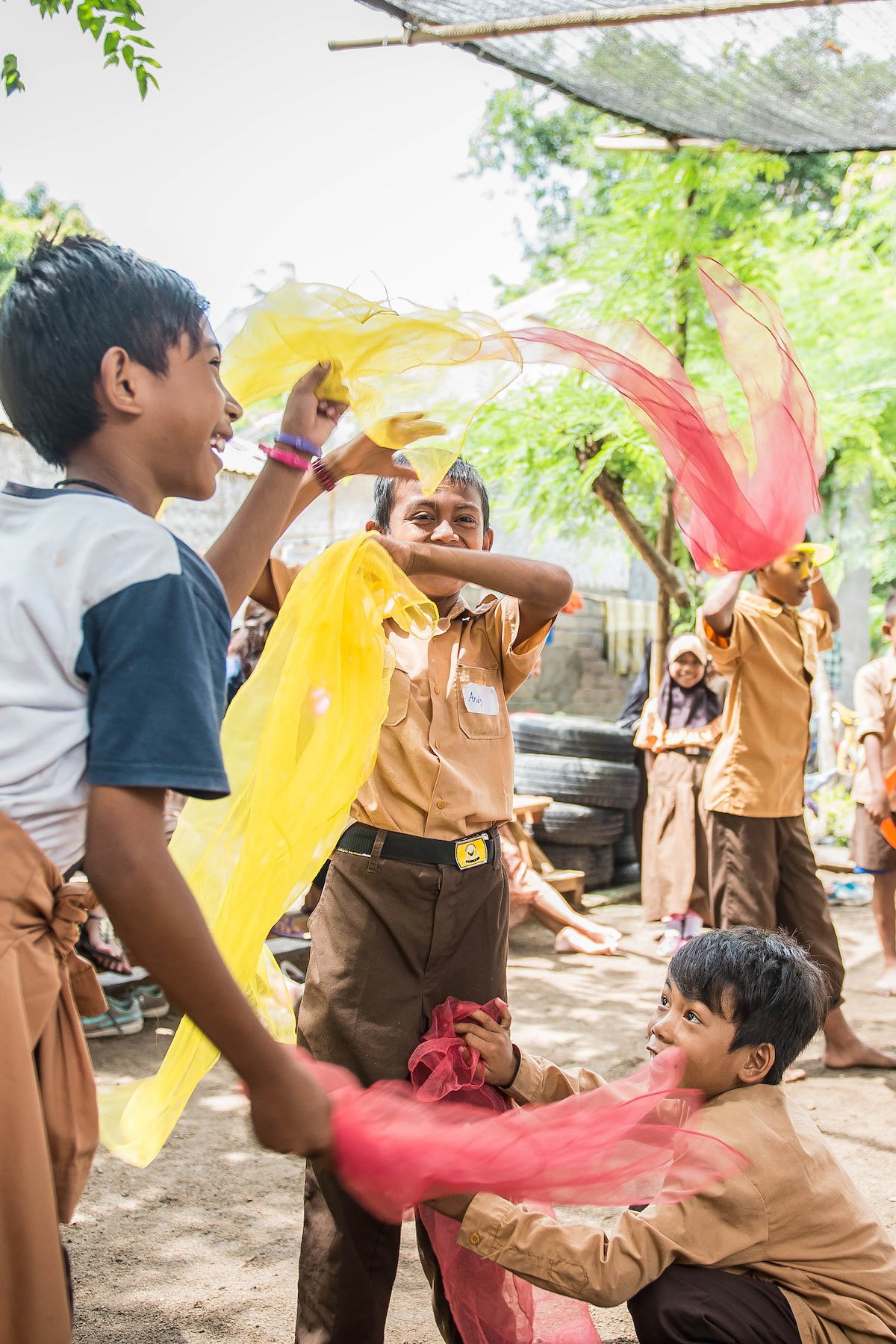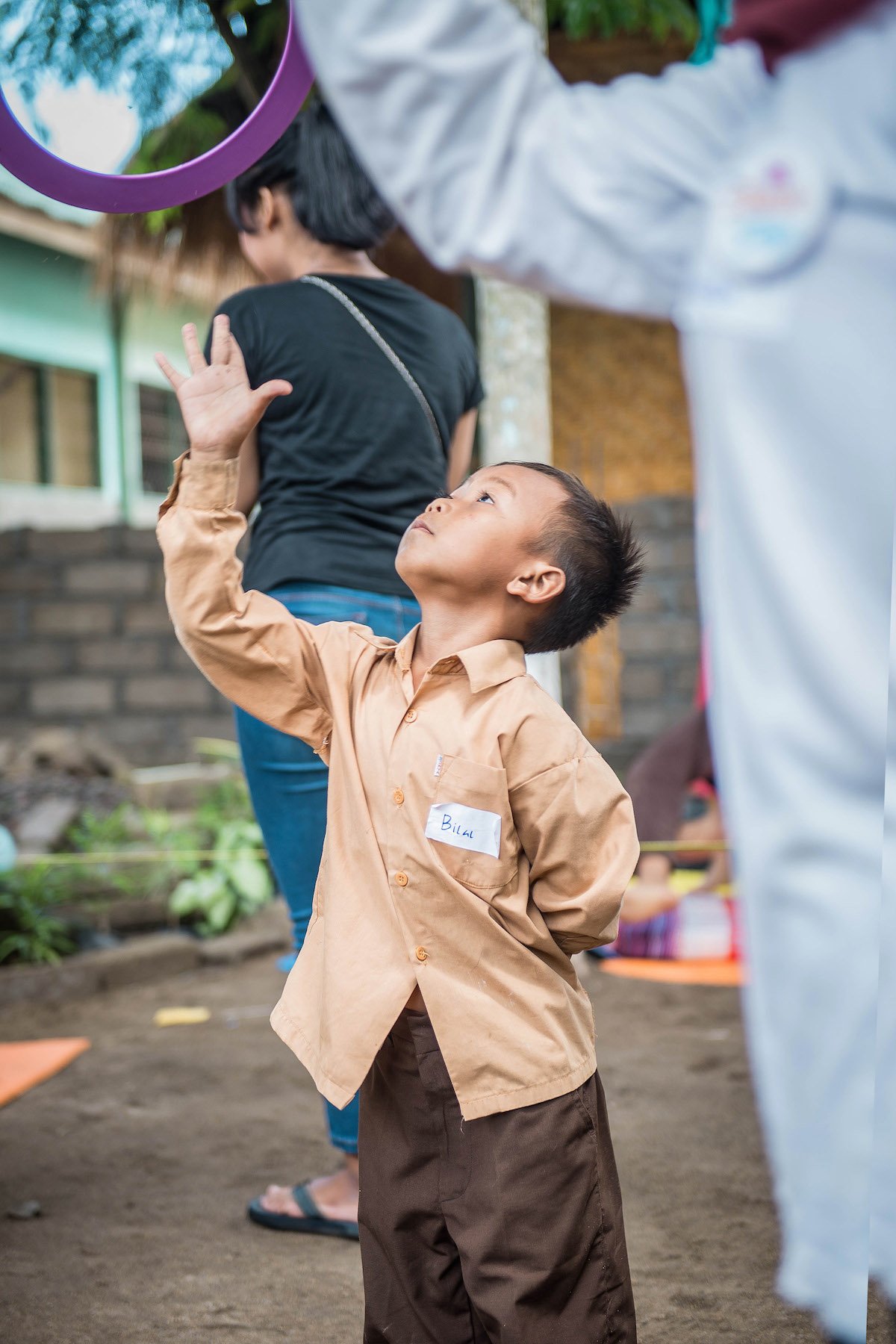Empowering Individuals and Communities Through Engagement In Circus Arts
Circus, as a discipline, provides a variety of experiences and activities that facilitate positive emotional, physical, and mental health outcomes. Occupational therapy and circus promote a better quality of life using the experience of play, fun, and creative expression.
HCT Activities
CLOWNING AND THEATRE GAMES:
Involve games and activities that are achievable for everyone and encourage various forms of verbal and non-verbal communication, reciprocation, eye contact, and planning behaviors. The activities involve running, jumping, crawling, and balancing. Social interaction, problem-solving, and a wide range of motor experiences are explored.
ACROBALANCE AND YOGA:
Activities promote physical, cognitive, and social health. Normalizing reactions to touch, building core strength and body awareness of self and others are important components and are encouraged through physical contact involving different positions where participants combine body parts to make a shape. Acrobalance can involve as little as two people or an infinite amount of people.
BALANCED-BASED ACTIVITIES:
Strengthen the vestibular system while encouraging participants to become familiar with their body awareness, and trust in themselves and a spotter. These activities also provide the opportunity for increasing challenges by incorporating multiple skills at the same time.
OBJECT MANIPULATION: JUGGLING, HULA HOOP, PLATE SPINNING, POI
Flow arts activities address gross and fine motor control providing repetition and practice of specific motor skills. Gross motor skills are necessary for proper body movement and are the foundation upon which new motor skills develop. Focusing on an individual’s motor skills can improve handwriting, social interaction, and self-esteem. Various activities provide opportunities for participants to improve coordination, sense of timing, and rhythm. Perseverance and problem-solving are encouraged while participants engage in bimanual hand use and crossing the midline to manipulate, grasp, and reach different objects.
PERFORMANCE - INFORMAL AND STRUCTURED:
Performance provides goal-setting opportunities for the participants, enabling them to see achievable results from their work while appreciating the accomplishments of others. Performance opportunities promote motivation and opportunities for positive risk-taking, spontaneity and improvising, and creativity by combining skills in a sequence. They also promote opportunities for collaboration and exploration of different themes and states of being.
Hear Jill discuss how circus can be implemented in schools on the OT School House Podcast!
Life Skills
Circus promotes the acquisition of life skills essential for healthy development.
“PHYSICAL HEALTH”
“BODY AWARENESS”
“COMMUNICATION”
“PHYSICAL AND SOCIAL SUPPORT”
“LEADERSHIP”
“SOCIAL CONNECTEDNESS”
“PROBLEM SOLVING”
